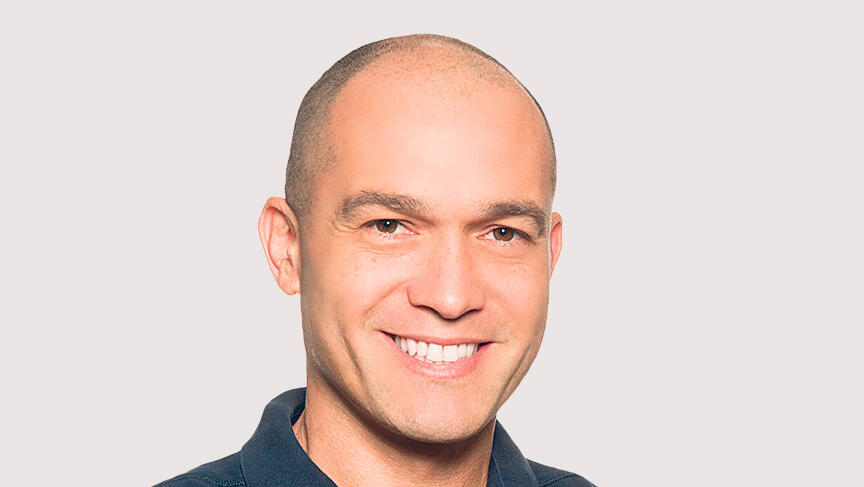
2025 VC Survey
Can Israeli startups catch up in the global AI race?
NFX’s Gigi Levy-Weiss has joined CTech to share insights surrounding artificial intelligence and Israel’s role in the global game of tech domination.
“AI will continue to boom as it becomes embedded in virtually every company, transforming industries from healthcare to finance and beyond,” said Gigi Levy-Weiss, Founding Partner at NFX. “This pervasive integration is driving innovation at an unprecedented pace, making AI a foundational technology for the future.”
Levy-Weiss joined CTech for its 2025 VC Survey to share insights on what he thinks Israel’s role will be in the global AI race taking over the tech sector.
“Israel is not missing out but it must continue pushing forward,” he continued. “The country’s robust AI ecosystem already contributes to fields like cybersecurity, healthcare, and defense. To stay competitive, Israel should focus on developing applied AI solutions, investing in talent development, and fostering deeper collaborations with global tech leaders.”
Fund ID
Name of Fund: NFX
Total Assets Under Management (AUM): Over $1 billion
Partners: Gigi Levy-Weiss, Sarai Bronfeld, Omri Amirav-Drory, James Currier, Pete Flint, Morgan Beller, Anna Piñol
Notable Portfolio Companies (Active): Papaya Gaming, Triple Whale, ImagenAI
Notable Exits: SuperPlay, Bridgecrew
2024 is over. How can you summarize it in terms of the Israeli high-tech industry?
2024 was a challenging yet transformative year for the Israeli high-tech sector. It was marked by geopolitical and macroeconomic uncertainty, which led to a slowdown in investments and fewer new startups being founded. Yet, the resilience of the Israeli ecosystem stood out, with entrepreneurs doubling down on efficiency and innovation. The focus shifted toward core technologies like AI and cybersecurity, which continued to thrive despite the turbulence. This created various challenges as investors focused on funding the very best companies and many good companies suffered from an inability to raise capital.
Looking ahead to 2025 - What challenges and opportunities await the Israeli high-tech sector in the coming year, and how are you, as investors, preparing for them?
2025 brings a mix of challenges and opportunities. The global economic uncertainty and potential shifts in American policy may create headwinds for the ecosystem. However, there is immense potential in areas like generative AI and synthetic biology. We also believe that we will see a spike in innovation and creativity when the war ends.
At NFX, we are preparing by doubling down on seed investments in startups with strong network effects, ensuring they have the resources to scale fast and close the gap vs. their Silicon Valley competitors. This is especially true for startups in the generative AI field - where Israel is a bit behind due to the defocus and lack of investment caused by the war. We are also focused on enhancing our founder support - ensuring we help our founders where we can - especially in implementing AI tools in their workflows.
How will new American leadership affect the global high-tech industry or economy? And where does this place Israel and its entrepreneurs?
The new American leadership is expected to bring shifts in global trade policies, tech regulations, and international collaborations. For Israel, this means potential opportunities to deepen ties with the U.S., especially in strategic sectors like AI, cybersecurity, and defense technology. Israeli entrepreneurs must stay adaptable, leveraging their agility to align with new policies while maintaining a global-first mindset.
While the shifts are likely to be more positive for Israeli founders than for those from other countries, there are also potential challenges around limitations on visas, export of AI technologies, etc, that Israeli companies will need to monitor and respond to carefully.
What are the three most important things the Israeli government should do today to accelerate the high-tech engine in the coming year?
Generally speaking, I am not sure that the government can really accelerate the ecosystem in a meaningful manner. It can however slow it down, so it’s critical to ensure this doesn’t happen. Specifically, I would focus on:
- Investment infrastructure: create the right infrastructure and legal clarity that will make investing in Israel as simple and tax-effective as possible. This is especially important for international investors but also for Israeli ones.
- Reduced regulation: ensure there is as little limiting regulation as possible hindering innovation and product development in areas like AI, bio, and cryptocurrencies.
- Talent development: Invest in upskilling programs, especially in AI and advanced engineering, to ensure a competitive workforce. Also, create amazing programs to attract global talent to relocate to Israel.
Are there new sectors you see as relevant? Are there any fields you anticipate will weaken significantly in the coming year?
AI will continue to boom as it becomes embedded in virtually every company, transforming industries from healthcare to finance and beyond. This pervasive integration is driving innovation at an unprecedented pace, making AI a foundational technology for the future. We are focusing both on the AI supporting areas - dev tools, DevOps, and cyber, as well as AI innovation in the application layer. Synthetic biology, longevity, and biotechnology are set to dominate 2025 with the help of AI we’ve seen breakthroughs in sustainable advancements, personalized medicine, and aging research, reshaping industries and pushing the boundaries of innovation.
These are the main areas we are focusing on - alongside a continued look into B2C applications and a new focus on defense-related technologies.
Is Israel missing out on the AI revolution in the global arms race? If not, what should the local industry focus on to join the global race?
Israel is not missing out but it must continue pushing forward. The country’s robust AI ecosystem already contributes to fields like cybersecurity, healthcare, and defense. To stay competitive, Israel should focus on developing applied AI solutions, investing in talent development, and fostering deeper collaborations with global tech leaders.
Could the global IPO drought end in the coming year?
The global IPO market could see signs of recovery in late 2025, contingent on improving macroeconomic conditions and renewed investor confidence. Companies with strong fundamentals, innovative products, and a clear path to profitability will be the first to capitalize on the reopening of the IPO window. However, a more substantial rebound is likely to pick up around mid-2026.
From an investor's perspective: will the coming year be better for early-stage startups or more mature companies?
2025 could be a year of opportunity for both early-stage startups and mature companies. Early-stage startups with unique AI technologies and lean operating models will continue to attract investor attention. Simultaneously, mature companies that demonstrate adaptability and resilience will find opportunities to consolidate or expand, particularly in high-growth sectors like biotech and cybersecurity. It’s hard to say whether the new technological advancement will present more opportunities for earlier or later-stage companies - but it’s clear that given the relative ease of adding AI to existing systems, it’s not clear (unlike in previous platform revolutions) that the winners will be early stage startups.
Did you raise fund money in 2024 for an existing fund or a new one? What are your expectations regarding this matter for 2025?
We’re fortunate to have already secured our 4th fund, which will be announced soon. This positions us well for the coming years, and we do not anticipate fundraising again for the next 18–24 months. This stability allows us to focus on supporting our portfolio companies and identifying the next wave of transformative startups.
How many investments did you make in 2024, and how does it compare to previous years?
In 2024, we invested in 11 Israeli companies so far, and we have two others that probably closed by the end of the year. We maintained a consistent level of investment compared to previous years, focusing on high-conviction bets.
Provide an example of an intriguing investment you made in 2024. What sets this company apart, or what is distinctive about its sector?
A few months ago, we participated in Koi Security's $9.5M seed round, led by CEO Amit Assaraf. This groundbreaking cybersecurity company is reimagining supply chain security and has quickly gained traction by addressing critical vulnerabilities in enterprise ecosystems. Founded this year, Koi Security is already collaborating with Fortune 100/500 companies just a month after closing its seed round, positioning itself to redefine the sector and make 2024 a breakout year.
Two notable companies that you think will thrive in 2025.
Company Name: enso
Sector + description of the product/service: AI Agents for Small Businesses
Investment amount + total: $6.5m
Founding Year: 2024
Reasoning why this is their year: AI agents are the fastest-growing sub-sector in the AI industry. By transforming into a catalog of services that SMBs can easily access through enso, the company is positioning itself as a leading contender in the space, with the potential to revolutionize the entire industry and the way SMBs operate entirely.
Company Name: ScaleOps
Sector + description of the product/service:
ScaleOps provides a real-time resource management platform powered by AI that fully automates and continuously optimizes cloud resources in production environments, resulting in up to 80% cloud cost savings and increased application reliability. By using real-time automation, ScaleOps empowers companies to free their R&D teams to focus on innovation while significantly reducing cloud expenses and enhancing application performance - a win-win situation.
Investment amount + total: Round B - $58M, Total- $80M.
Founding Year: 2022
Reasoning why this is their year: Cloud-native application adoption is growing exponentially, and it’s predicted that by 2029, over 95% of companies will be using containers in production. ScaleOps is positioned as the clear category leader in cloud resource management, tackling head-on what we see as the most critical challenge in the cloud-native landscape.













